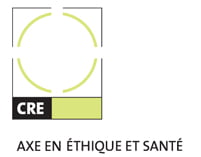
« Non-Invasive Prenatal Diagnosis (NIPD): Bioethical reflections on the future of prenatal genetic testing »
MaMiC organisé par Vardit Ravitsky (Programmes de bioéthique, UdeM)
12h00 à 13h30
2910 Édouard-Montpetit, local 309 (Métro Université-de-Montréal)
An up-and-coming technology will soon allow genetic testing of a fetus with a simple maternal blood test early in the first trimester of pregnancy by isolating cell-free fetal DNA in the mother’s plasma. This new technology will eliminate the risk of miscarriage associated with current invasive methods of diagnostic testing (CVS and amniocentesis) and will allow access to diagnostic information much earlier in the pregnancy. It therefore promises tremendous benefits and has the potential to revolutionize prenatal care. At the same time, it raises serious ethical concerns. Who should be offered this test? Women identified as carrying high risk pregnancies (as is currently the case) or all women? Will this test promote women’s reproductive autonomy? Or will it threaten it by becoming integrated into routine prenatal care within a medical system that favors testing and that creates pressure on women to be ‘responsible mothers’ before birth? What new mechanisms of informed consent should we develop to enhance reproductive autonomy and how should we implement them? What uses of this test would be considered legitimate and appropriate? For example, would it be acceptable if parents use this technology for sex selection for non medical reasons? This presentation will explore the ethical implications of implementing this new technology while focusing on issues related to reproductive autonomy and the social construction of pregnancy and parenthood.
Une nouvelle technologie permettra bientôt de tester l’ADN fœtal circulant dans le plasma maternel pour établir un diagnostic génétique prénatal. Cette nouvelle approche non-invasive permettra d’éliminer le risque de fausse-couche associé aux méthodes invasives actuelles (CVS et amniocentèse) et d’accéder à l’information diagnostique plus tôt dans la grossesse. Elle offre d’énormes avantages et pourrait révolutionner le suivi prénatal. En même temps, elle soulève des préoccupations éthiques.
A qui devrait-on offrir ce test? L’autonomie procréative des femmes enceintes, serait-elle favorisée par ce nouvel accès à l’information diagnostique? Serait-elle plutôt menacée lorsque ce test s’intègre au suivi prénatal dans le cadre d’un système médical qui favorise les tests et qui tend à créer une pression sur les femmes d’être des «mères responsables» même avant la naissance? Quels nouveaux mécanismes de consentement libre et éclairé devrait-on instaurer pour protéger cette autonomie? Quelles utilisations du test peut-on considérer comme étant légitimes et appropriés? Par exemple, serait-il acceptable d’utiliser cette technologie afin de sélectionner le sexe pour des raisons non médicales ?
La présentation explorera certaines implications éthiques de la mise en œuvre de cette nouvelle technologie, en se concentrant sur des questions liées à l’autonomie procréative et à la construction sociale de la grossesse.



